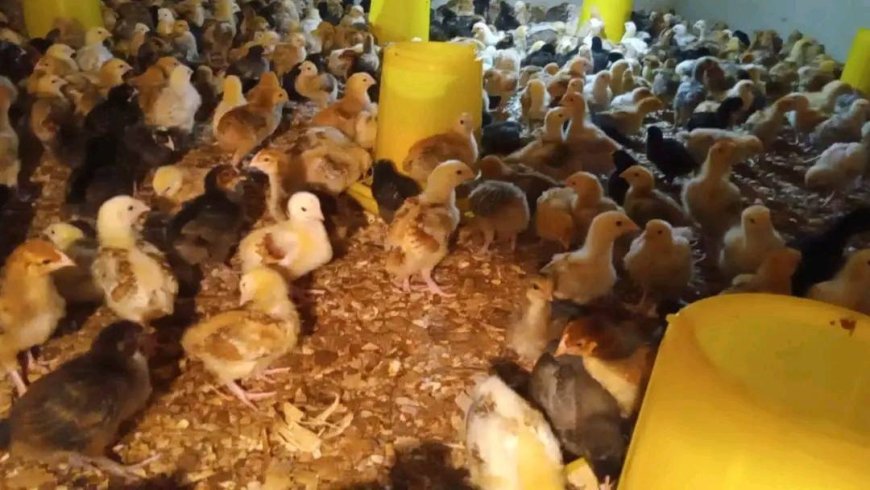Improved kienyeji chicken the way to go, Busia farmers advised

Teso,
Wednesday, November 22, 2023
KNA by Absalom Namwalo
With the growing demand for Kienyeji chicken due to its delicious taste and adaptability to different environments, Busia farmers have been urged to embrace the improved chicken breed to meet market demand.
Bungoma Liverstock Officer John Chuma while addressing farmers during a training at Angoromo village in Teso South noted that improved chicken is selectively bred to exhibit enhanced traits such as resilience to disease, faster growth, and improved egg-laying capabilities and good market value.
Chuma added that it’s through advancement of such technology that farmers would be able to bolster their pocket in these hard economic times.
"Embracing improved Kienyeji chicken breeds is not just a choice but a crucial step towards a more resilient and economically viable poultry industry. These breeds, with their enhanced traits, not only offer a significant opportunity for farmers to bolster their income but also contribute to the overall strength and sustainability of our local agriculture,” said Chuma.
The officer added that it would be ineffective and costly to farmers to insist on keeping chickens that are counterproductive and cannot add value to the lives of farmers.
“Having 20 chickens that take 2 years to mature is uneconomical and a waste of resources to the farmers. The investment on the farm must march the produce,” he added.
In Busia, about 90 percent of households have chicken farms though the number of chickens differed depending on knowledge and skills of chicken farming.
Moreover, farmers are slowly changing the perception of chicken farming for food and cultural values to a more economical purpose that will see their livelihood change over time.
Chuma highlighted the common diseases affecting improved Kienyeji chickens, including bacterial, viral, protozoal, and fungal infections. “The most common disease that affects farmers is Newcastle Disease which is a highly contagious viral disease that affects the respiratory, nervous, and digestive systems of chickens. It can lead to high mortality rates if not promptly controlled,” he added.
“Also, Coccidiosis, a protozoal infection that affects the intestinal tract, causing diarrhea, weight loss, and decreased egg production,” said Chuma.
He further outlined key mitigation measures, emphasizing the importance of regular vaccinations to prevent viral and bacterial infections. He noted that deworming is crucial to combat parasitic challenges that could affect the birds' overall health.
Several farmers have already embraced the initiative, citing the potential for increased income and reduced risks associated with traditional Kienyeji chicken farming.
Mary Etyang, a farmer in Busia County, expressed optimism about the shift, stating, "The improved Kienyeji chickens have better resistance to diseases. I believe this will lead to better profits for my farm."
"I've witnessed a positive change in my poultry farm since I shifted to improved breeds. The eggs are more consistent, and the overall health of the flock has improved," she remarked.
Chuma acknowledged the challenges faced by farmers in adopting improved Kienyeji chicken farming that included limited access to quality breeding stock, inadequate veterinary services and lack of awareness among farmers about the benefits of transitioning to improved breeds.
Chuma challenged Busia county government to empower Agriculture Extension Officers to train farmers on the most appropriate skill in different fields that could impact positively in their lives.
“Most farmers lack basic education on chicken farming prompting them into trial and error and at the end, they lose their chicken due to diseases or malnutrition,” he noted.
Courtesy; KNA
What's Your Reaction?



































































































































































































































































































